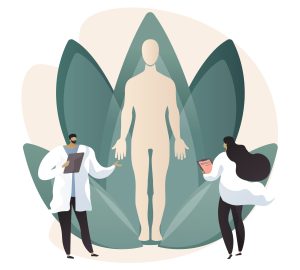spreading hpv awareness | The National Cancer Institute awarded a five-year $2.83 million grant to Juliet Iwelunmor, Ph.D., professor of global health and behavioral science and health education at Saint Louis University’s College for Public Health and Social Justice. The funds will be used to expand human papillomavirus (HPV) vaccination amongst young women and girls in Nigeria. “Actions for Collaborative Community Engaged Strategies for HPV,” or ACCESS-HPV, uses crowdsourcing to come up with feasible and sustainable ideas to increase prevention services, especially for mothers and their daughters. “The primary outcome will be vaccine uptake among young girls and HPV self-collection among their mothers,” Iwelunmor said. “The strong support of the Nigerian Institute for Medical Research (NIMR) alongside national HPV programs creates a rich research infrastructure and increases the likelihood of successful implementation.”
better bone marrow treatments
When bone marrow fails, the body cannot make healthy red blood cells, white blood cells and platelets, and people are at increased risk of skin and blood cancers, anemia and infection. Research led by Washington University School of Medicine has identified a possible treatment for a rare form of bone marrow failure syndrome, known as poikiloderma with neutropenia. While it was previously known that a mutation of the USB1 gene was responsible for the disease, it was unclear why the error caused bone marrow failure. The study found the mutation leads to an issue processing microRNA. The molecules would break down faster than they should, leaving stem cells unable to develop into normal blood cells. The team identified a possible course of treatment in targeting enzymes that also play a part in the process to restore equilibrium.
from research to practice
Mercy is one of 42 health systems in the U.S. selected to pioneer a new initiative to provide patients faster access to beneficial evidence-based care. On average, it takes 17 years for published medical research to be put into practice widely. To address that delay, the Patient-Centered Outcomes Research Institute (PCORI) aims to more quickly move research findings into clinical care. Mercy, along with other participating health systems, can receive up to $500,000 to support preparation for future, rapid implementation strategies. “Ultimately, our participation will lead to improved health care delivery and better outcomes,” says JoAnne Levy, vice president of Mercy Research. “This opportunity to be one of the few systems participating will further ensure we get the right care to the right patients at the right time and in the right place.”
immunotherapy response
Researchers at Washington University School of Medicine may have answered why only around half of melanoma patients respond to immunotherapy: immune cells known as CD5+ dendritic cells. These cells bear the protein CD5 on their outer surface. Cancer patients who had more CD5+ dendritic cells were found to live longer, and in mouse models, a lack of CD5 correlated with an inability to respond to immunotherapy. “Immunotherapy has revolutionized the field of cancer therapy, but there are a lot of patients with cancer who don’t benefit from it,” said senior author Eynav Klechevsky, Ph.D, an assistant professor of pathology and immunology. “Part of the reason some people do not respond well to some forms of immunotherapy is because this population of dendritic cells is reduced dramatically.” The study suggests that a supplementary therapy designed to increase the activity of these cells could make immunotherapy a viable treatment option for more patients.








